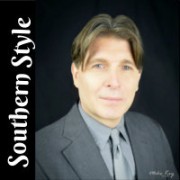Will AI create a semblance of what was in what will be?
Many of us are hearing more and more about Artificial Intelligence and the impact that could have on our lives in the future.
You are likely aware that many of the entertainment unions have held strikes in the last year. AI was a major aspect of the items being negotiated in the new contracts they were trying to establish with producers.
AI is becoming a major player in creating visual, voice, writing, and likely many other aspects and trade jobs will be affected by the advances of what this new technology.
As artificial intelligence continues to advance at a breakneck pace, the film and television industry stands on the cusp of a technological revolution. From script writing to visual effects, AI is poised to transform nearly every aspect of production, promising increased efficiency and new creative possibilities. But this sea change also raises concerns about job displacement and the very nature of artistic creation.
One of the most immediate impacts of AI is likely to be in the realm of pre-production and script writing. AI-powered tools can analyze successful scripts, identifying patterns in structure, dialogue, and pacing. This technology could assist writers in developing more engaging narratives or even generate entire script drafts. While this may streamline the writing process, it also raises questions about originality and the role of human creativity.
As a writer, I could go to an AI generator and pose a query – “Write me a 20-inch newspaper column about the future impact of AI on film and television.” I would not have to spend the time of putting this together these words from my gray matter. My fingers would not have the joy of feeling the keys on my computer.
Perhaps most controversially, AI is making inroads into acting itself. Technology which uses machine learning to create or manipulate video and audio, could potentially resurrect deceased actors for new roles or de-age living actors for flashback scenes. This raises ethical questions about consent and the ownership of an actor’s likeness. States around the country, the U.S. Congress, and the workers unions are continuing to look at options to protect individual performers and their estates from potential uses without permission and compensation.
I understand even now as an actor, with an adequate sampling of my performances on film and of my speech patterns, my image can be created doing almost anything a producer might want.
In production, AI is set to revolutionize visual effects and animation. Machine learning algorithms can create realistic digital environments, crowds, and even entire characters, potentially reducing the need for expensive on-location shoots or large teams of animators. This could democratize high-quality visual effects, making them accessible to smaller productions and independent filmmakers.
I was visiting with a director of photography who was telling me of his work for a project totally created within an AI system, which is beyond my knowledge base but reflects the transition of more types of jobs into a box.
Post-production is another area ripe for AI disruption. Intelligent editing software could automatically assemble rough cuts based on emotional beats or narrative structure, significantly speeding up the editing process. AI could also enhance color grading, sound mixing, and other technical aspects of post-production.
AI will make creating shows more efficient and likely lower costs. Despite the challenges, proponents argue that AI will ultimately enhance rather than replace human creativity. They envision a future where AI takes over mundane tasks, freeing creatives to focus on higher-level artistic decisions.
Here is my take. I have spent a life behind the scenes in film, television and music watching the people create in those mundane aspects of what has to be done to bring all these things to fruition. Every task has its art within it.
Technology has always allowed us to forge new ways to do things and improve the process, but the human creativity of all the trades was still present and imprinted on every foot of film and inch of recording tape to move our emotions with film, TV and music.
As the industry adapts to this new technology, one thing is clear: the landscape of film and television production is set for dramatic change. How Hollywood navigates and we receive this AI revolution will shape the future of our entertainment for years to come.
Now was this me or was it Memorex? If you are old enough, hopefully that line will close us out with a smile.


